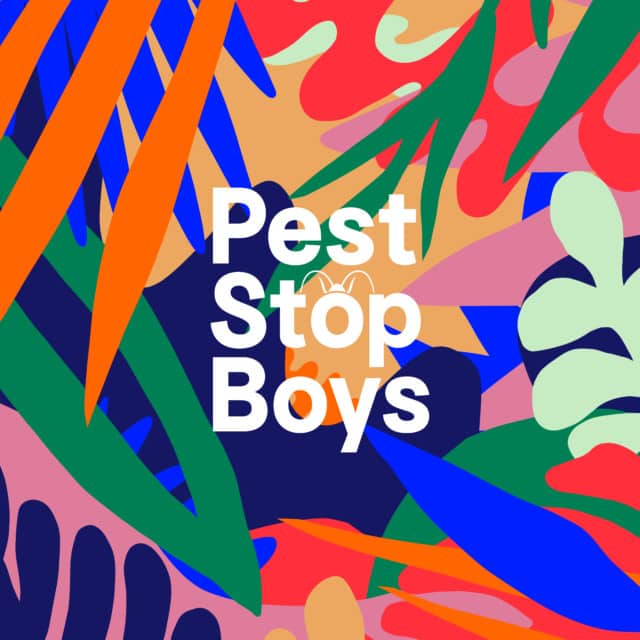What birds are pests in the UK?
The British Trust for Ornithology states that there are over 600 bird species living wild in the UK – including both native birds and those that have formed colonies after travelling from overseas. Because they live in such a diverse range of habitats and are very responsive to environmental pressures, the UK’s bird population is often used as an indicator of the state of UK wildlife.
Sometimes, though, the birds themselves can become the pests. When they start to damage livelihoods, health or buildings or their overpopulation causes environmental challenges, that’s where the need for bird pest control services comes in.
Here, you’ll find out what birds are pests, the impact of these pest birds, the legalities of bird pest control and the most effective – and humane – ways to keep pest birds away.
Our bird population is needed for a huge number of reasons. Some pollinate our plants and crops, while others disperse seeds to keep biodiversity high. Others clean up natural waste, while some are great for pest control, feeding on insects that can destroy crops and other plants.
If you’ve been wondering what birds are pests in the UK, wonder no more. These are some of the most common culprits:
- Pigeons: They live in high up spaces safe from predators – think ledges, holes and crevices in buildings. They often nest in flocks and are attracted to places where they can scavenge for all types of food scraps.
- Gulls: No longer confined to the coast, gulls love to nest in commercial and residential areas that they know have good food sources. A roof or safe building is their favourite nesting spot, and some gull species will return to the same nesting site year after year.
- Sparrows: Gutters and drainage pipes are favourite nesting sites for sparrows, as well as in roof spaces, wall creepers and thick hedges. They have a high reproductive capacity and so can be hard to control.
- Starlings: Living in colonies, which can number into the thousands – starlings love to nest in cavities. Because they flock in huge numbers they can not only be a nuisance, they can also be a danger to machinery.
- Collared doves: These birds tend to live on farmland, as well as in gardens, parks and woodland. They often live alone or in pairs, but can flock in areas where there is plenty of food. They can be noisy in large groups, and can be aggressive towards smaller birds.
The Impact of Pest Birds: Economic, Health, and Environmental
There are three major ways in which birds can impact negatively on their environment and start to be classed as pests.
The first is economic – damage to infrastructure and property. The act of building nests can damage all sorts of spaces, from your chimneys or the eaves of your roof to your solar panels, as certain bird species love to nest underneath. Birds can damage crops while searching for food, and their droppings can also erode buildings and other parts of your infrastructure.
The second is the risks to health. Birds, their feathers and their droppings can carry all manner of bacteria and diseases which can result in serious illness. For business owners, the presence of such diseases can result in fines or even complete closure.
Finally, pest birds can also cause environmental challenges. If the population of a certain species grows too much, it can throw out the entire ecosystem. It can reduce the availability of food for other species, or it can lead to changing behaviours as these birds need more food sources and more spaces in which to nest.
The good news is that all of this can be avoided – as long as it is done legally.




Bird pest control isn’t as easy as simply destroying pest birds – and we wouldn’t want it to be, either. All wild birds are protected under UK law: specifically the Wildlife and Countryside Act of 1981 and the Protection of Birds Act 1954, which prevent people from:
- Intentionally killing, injuring or taking any wild bird
- Intentionally taking or destroying wild bird eggs
- Intentionally destroying, damaging or taking a wild bird nest while it is being built or in use
- Disturbing birds while nesting or nest building
- Using traps to injure, kill or take wild birds
Falling foul of the law can result in an unlimited fine, a six-month prison sentence, or both.
These laws are why bird and bird nest pest control services focus on deterring, rather than destroying, pest birds and their nests. Deterrents include denying access, removing evidence of old nesting sites and removing sources of food and nest-building materials, as well as visual and other deterrents.
The laws we’ve discussed apply to all bird species, but there are exceptions to the rules. In certain situations, more serious solutions may be required, for example:
- If public health and/or safety are at risk
- For reasons of air safety
- To conserve other animal populations that are threatened by pest birds
- To avoid damage or disease (to crops etc)
Here, bird pest control services can apply for special licences to resolve the problem in the most appropriate way.
At Pest Stop Boys we employ a variety of bird pest control measures, from netting, spikes and chimney protection to ultrasonic and visual deterrents. Where possible, our solutions are designed to be humane, and are non-toxic and as unintrusive as they can be.
Don’t just take our word for it, though: take a look at our Checkatrade reviews where you’ll see testimonials from a number of happy clients who have used our bird pest control services.
If bird pests are making your life a challenge, don’t suffer for longer than you need to. Contact us by phone or via our online form for a consultation to find out how Pest Stop Boys can help.

